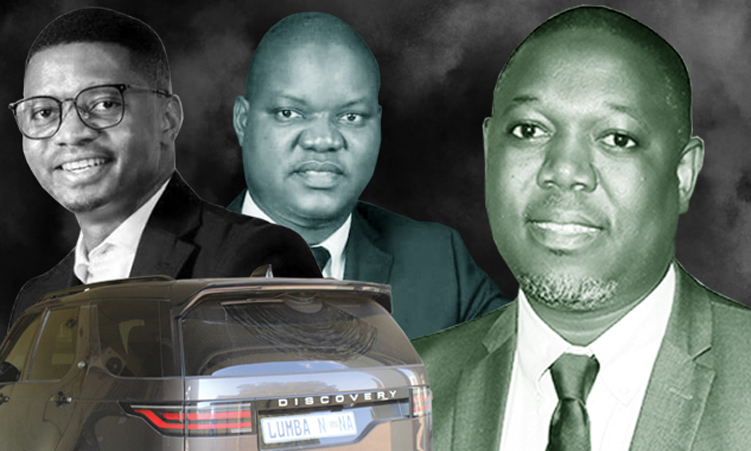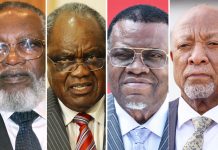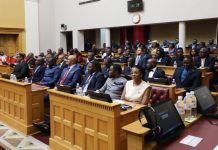By Tracy Tafirenyika and Ester Mbathera | 3 August 2025
THE state-owned Namibian Agronomic Board (NAB) has agreed to spend N$5.8 million on vehicles of five top executives at the parastatal that derives its revenue from levies collected on the sale and import of controlled agronomic and horticultural products.
The Namibian understands that the same board splashed N$2.2 million on a Land Rover Discovery for its chief executive officer (CEO) in 2023.
The purchase of the vehicle is part of the N$138 million 2025/26 operations budget that was approved on 14 April by former minister of agriculture, fisheries, water and land reform Mac Hengari.
The board’s approved budget is likely to get each executive a vehicle worth N$1.2 million. Calculations show that this could equate to N$30 000 to N$40 000 in car allowance without the salary and other perks.
Documents seen by The Namibian show there are concerns among NAB officials that the company is prioritising paying for luxury vehicles while staff members don’t have medical aid coverage.

The latest spending is part of a pattern among parastatals that are splashing on executives’ vehicles.
Two years ago, another state-owned entity, the Namibia Institute of Pathology (NIP) bought new cars worth N$5.3 million for its top five executives amid claims that the parastatal was struggling to obtain essential materials needed to conduct laboratory testing.
The current NAB executive team consists of Eliaser Asser as manager for governance, legal and risk management who has been with the company since 2022, Gilbert Mulonda, the general manager for agronomy and horticulture development since 2020, and general manager for human capital Melissa Porfirio, who joined the board in June, according to the board’s website.
The executive for finance is yet to be appointed.
The Namibian reported last year that the government froze executives’ salaries at the NAB after the auditor general found that a senior manager at the parastatal was overpaid by almost N$700 000 annually.
NAB CEO Fidelis Mwazi has defended the board’s decision to purchase vehicles for its executive leadership, citing operational demands and the need for a sustainable transport solution.
“Executives at the NAB are routinely required to travel across Namibia to conduct inspections, engage regional stakeholders, and coordinate with other institutions.
Many of these responsibilities are outside of Windhoek and require reliable, consistent transport. Currently, NAB executives use their personal vehicles for official duties and claim travel reimbursements,” he says.
Mwazi adds that the board is currently reassessing this approach to improve efficiency.
“The NAB is reviewing this arrangement and is considering the introduction of official company vehicles to support executives in fulfilling their operational mandates.
Given the scope and frequency of travel required, reducing reliance on private vehicles through a structured company transport solution has become both a practical and strategic imperative,” he says.

When asked about the policy, Mwazi says the NAB’s current executive remuneration policy does not include a vehicle allowance or benefit, except in the case of the CEO.
“The CEO receives a vehicle as part of their total remuneration package.
This vehicle is used for both official and limited personal purposes, with the personal use portion fully taxed in accordance with prevailing tax legislation. This arrangement was formally approved by the board and is governed by the terms of the CEO’s employment contract,” he says.
Mwazi says the process has been handled transparently and in line with governance standards.
“To ensure full transparency and pre-empt any questions regarding the CEO’s vehicle, it is important to emphasise that this benefit is fully disclosed, appropriately taxed, and accounted for in line with good governance and compliance standards,” he says.
He adds that the board is actively responding to evolving operational demands and is considering formalising vehicle benefits for executives going forward.

“Recognising evolving operational demands and industry benchmarks, the board resolved to explore the development of a structured motor vehicle benefit scheme for all executives as part of the 2025/26 financial year,” he says.
“Should this scheme be adopted, it would be governed by a dedicated motor vehicle policy aligned with the NAB’s overall remuneration framework.”
Mwazi clarifies that to date, no vehicle benefit has been extended to any executive other than the CEO, and any broader implementation will only proceed after thorough internal and – where required – external approvals.
“The process is being supported by an independent advisory firm to ensure objectivity, legal compliance, and adherence to governance best practices,” he adds.
Asked how the board disposes of older executive vehicles and to avoid state assets being sold for peanuts afterwards, Mwazi says the proposed executive vehicle scheme has not yet been implemented so no disposals of executive vehicles have taken place.
“Should the scheme be approved, any future disposal of such assets will be governed by a clear policy framework that incorporates fair market valuation principles and compliance with applicable laws and regulations governing public entities.
“It is disheartening to observe that some board members and executives appear more focused on personal gain than on their fiduciary duty to safeguard government funds.

There is a growing perception that public resources are being used to fund excessive travel, both locally and internationally, with little accountability.”
The Namibian understands there is no official policy supporting such a benefit, apart from the existing car allowance included in executives’ salaries.
Former president Hage Geingob imposed a moratorium on unnecessary travelling and the buying of cars in 2020.
This ban was lifted but concerns have continued over how parastatals continue to consume taxpayers’ money into nice-to-haves.
In 2023, commenting on the executives spending at NIP, political analyst and social commentator Rui Tyitende said the purchasing of new vehicles by the parastatal was unjustifiable.
“They say a fish rots from the head. So, this culture of entitlement and conspicuous consumption emanates from the highest echelons of political power.
“And it is always the fat cats who benefit from such outlandish schemes.
“What could possibly justify the purchasing of luxury cars for an institution that is not a commercial enterprise? As a country, have we lost the moral high ground and the capacity for shock?”






